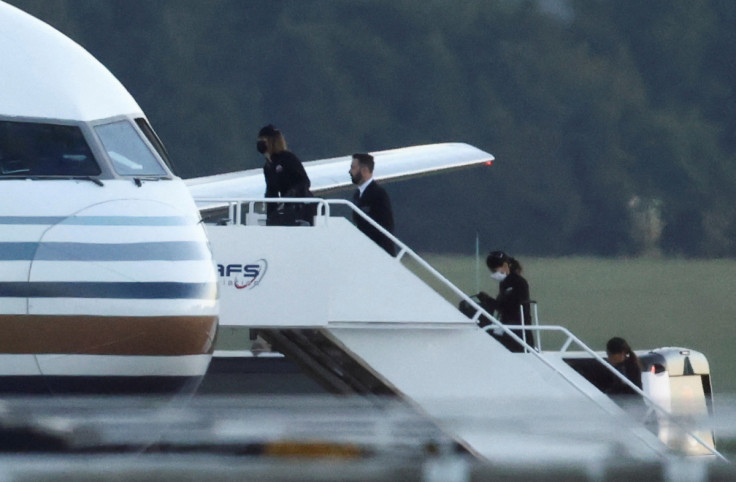UK officials warned government not to pursue Rwanda deportation plan, court told
British officials repeatedly warned the government not to pursue its plan to send migrants to Rwanda and the country was initially excluded from the shortlist of partner countries because of human rights concerns, London's High Court was told on Tuesday.

British officials repeatedly warned the government not to pursue its plan to send migrants to Rwanda and the country was initially excluded from the shortlist of partner countries because of human rights concerns, London's High Court was told on Tuesday.
Under an agreement struck in April, Britain will send tens of thousands of migrants who arrive on its shores illegally more than 4,000 miles (6,4000 km) to the East African country.
The first planned deportation flight last month was blocked by a last-minute injunction from the European Court of Human Rights.
The government has vowed to press ahead with the plan, but the policy is facing a judicial review at the High Court where its lawfulness is being challenged.
Lawyers acting for asylum seekers from countries including Syria, Sudan, and Iraq, as well as charities and Border Force staff, have been sent thousands of documents detailing internal government discussions about the policy.
In February last year, the British High Commissioner to Rwanda said in a memo that Rwanda should be not selected as a place to send migrants for a variety of reasons including that the East African country had been accused of "recruiting refugees to conduct armed operations in neighbouring countries", according to written evidence submitted to the court.
The memo also said that Rwanda "has a poor human rights record regardless of the conventions it has signed up to" and has been criticised by Britain for "extrajudicial killings, deaths in custody, enforced disappearances and torture".
Another internal government memo from April 12, a day before the deal with Rwanda was signed, said the agreement was "unenforceable, consisting in part of upfront payments, meaning fraud risk is very high".
'HUMAN RIGHTS'
Officials in the Foreign Office also cautioned that if Rwanda were to be selected, "we would need to be prepared to constrain UK positions on Rwanda's human rights record, and to absorb resulting criticism from UK Parliament and NGOs".
Yolande Makolo, a spokeswoman for the Rwandan government, has criticised what she called misconceptions about the way migrants would be treated in the country. The Rwandan government is not party to the hearing.
"Rwanda is a safe and secure country with a track record of supporting asylum seekers," a British government spokesperson said. "We remain committed to delivering this policy to break the business model of criminal gangs and save lives."
The government argues the deportation policy will smash the business model of people-smuggling networks after a record 28,500 people crossed the English Channel in small boats last year.
However, a report by parliament's Home Affairs Committee on Monday said there was no clear evidence the Rwanda plan would deter migrants.
"The government's Rwanda plan is a total mess," Yvette Cooper, the home affairs spokesperson for the opposition Labour Party, said.
"Today's revelations show that ministers knew the policy was unenforceable, would be at very high fraud risk and would undermine UK foreign policy and our ability to raise the issue of Rwanda's human rights record."
Tuesday's hearing was being held to decide when a full judicial review should begin, with the court due to give its decision on Wednesday.
Copyright Thomson Reuters. All rights reserved.




















